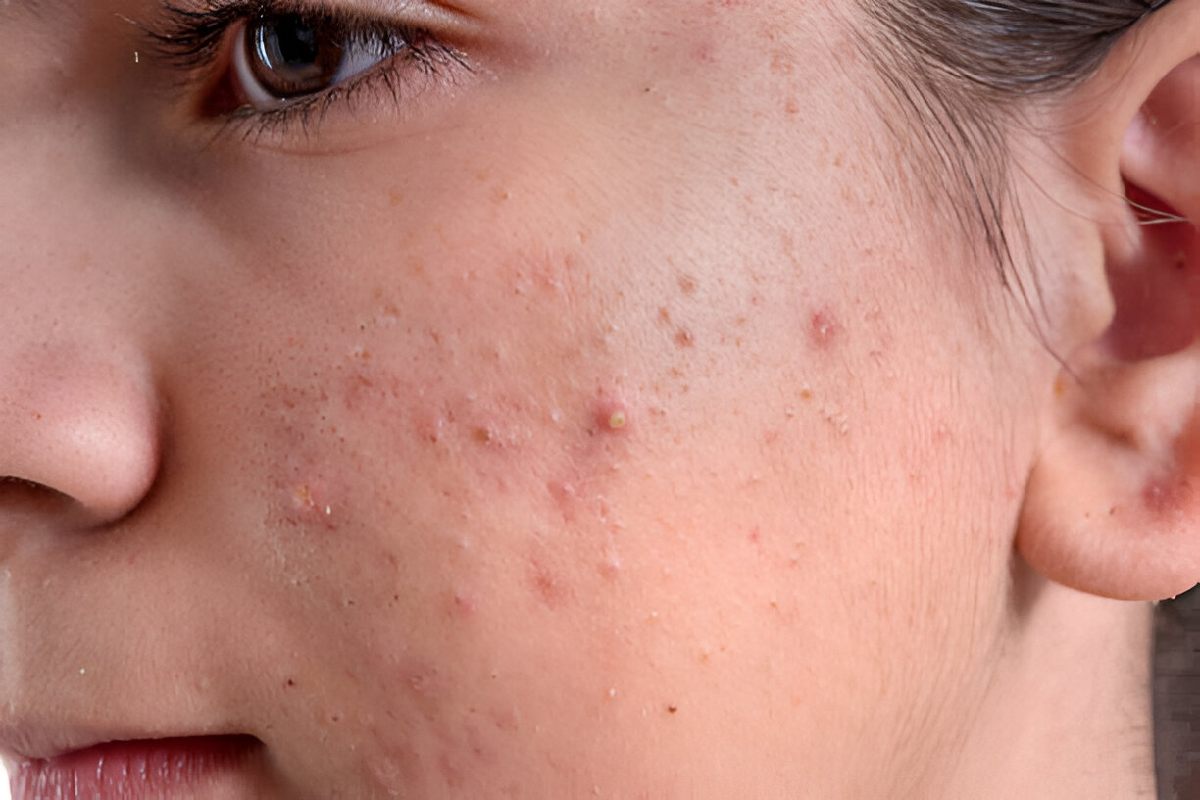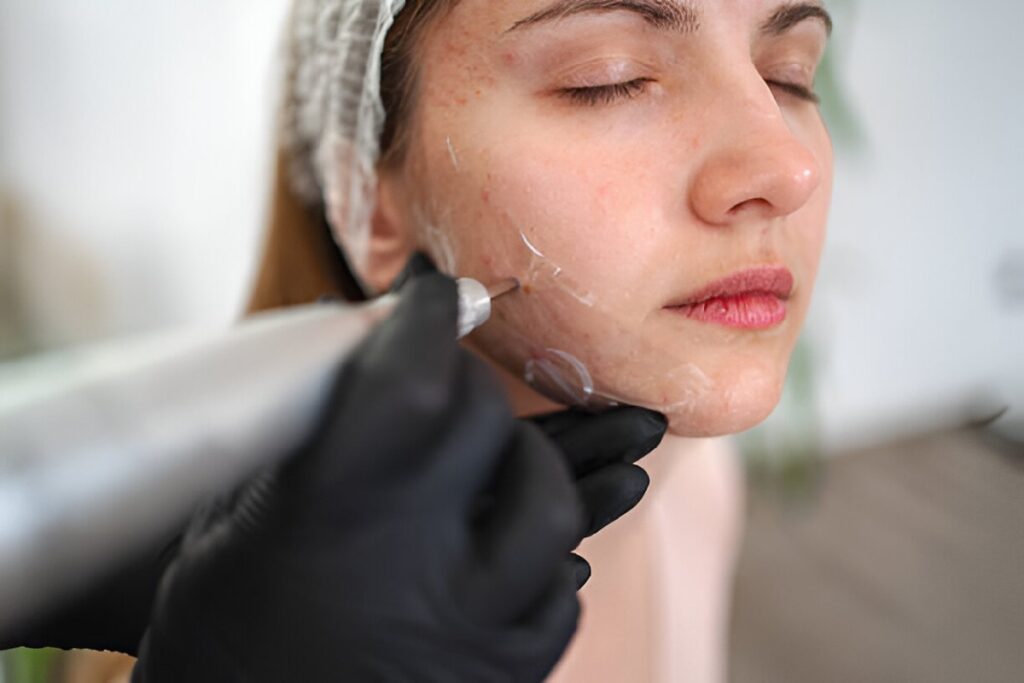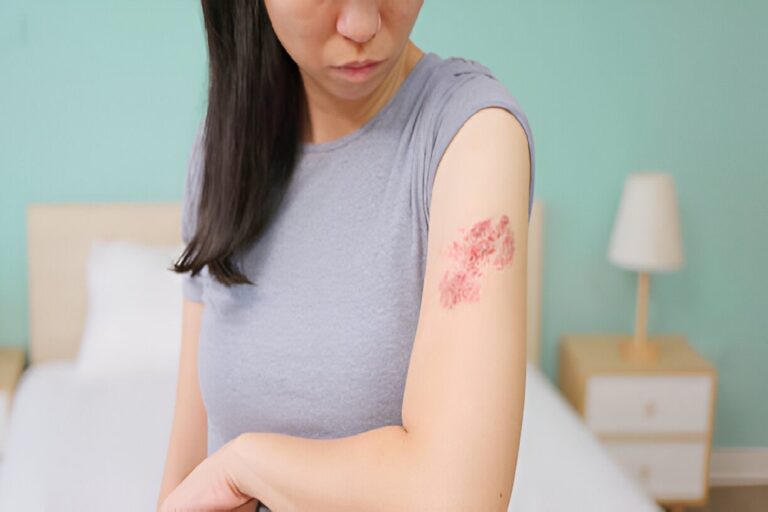Natural and Medical Acne Scars issue, most notably acne scars, is a skin problem that causes individuals to feel low self-esteem. These post-inflammatory hyperpigmentation changes are permanent scars when acne has been either severe or managed inappropriately. Identifying the different forms of How to treat acne scars naturally and proper treatment procedures keep your skin …
How to treat acne scars naturally and medically

Natural and Medical Acne Scars issue, most notably acne scars, is a skin problem that causes individuals to feel low self-esteem.
These post-inflammatory hyperpigmentation changes are permanent scars when acne has been either severe or managed inappropriately.
Identifying the different forms of How to treat acne scars naturally and proper treatment procedures keep your skin looking flawless and improve your self-esteem.
Methods of How to Treat Acne Scars Naturally:
- Natural ingredients.
- Medical treatments.
- Lasers
- Injections
- Surgeries
Types of Acne Scars:
Before choosing a treatment, it’s essential to identify the type of acne scars you’re dealing with.
1.Atrophic Scars:
- Ice Pick Scars: Shallow furrow-like lesion that resembles a minor punctate defect.
- Boxcar Scars: Wide and flat basins with steep rims.
- Rolling Scars: Skin that appears wavy and irregular due to the fibrous septae of the skin.
2.Hypertrophic Scars:
Keloid scars appear when collagen deposits overgrow as part of the healing process.
3.Post-Inflammatory Hyperpigmentation (PIH):
An inclination or skin color changes that persist after the healing of acne pimples, though different from typical scars, are regarded as such by many.
How to treat acne scars naturally

For those seeking non-invasive and chemical-free solutions, natural remedies can be effective for mild scars and skin discoloration.
1. Aloe vera:
Aloe Vera, a plant with healing properties and a soothing effect, can alleviate inflammation and smoothen the skin’s texture.
How to Use: New aloe vera gel should be applied to the scar area and let to act for 30 minutes during the day.
2. Lemon Juice:
Kiwi is an superb source of vitamins and minerals that can strengthen the body’s immunity and alimentary canal. It also has a natural skin-whitening ingredient in lemon juice to eliminate melanin.
How to use:
Rinse with diluted lemon and moisturize with lotions or sunscreen after washing because lemon contains a high percentage of vitamin C and is likely to make skin sensitive to UV radiation
3. Honey:
It is also important to mention that honey kills bacteria and contributes to skin restoration.
How to Use:
Raw honey should be spread directly on the scar and left at night because of its effectiveness.
4. Coconut Oil:
Coconut oil possesses certain fatty acids that assist in skin moisturizing and also enhance skin repair.
How to Use:
Apply a dime-sized amount to the scar area every day.
5. Baking Soda:
It serves as a gentle scrub, which helps clean the skin from dead skin cells.
How to Use:
The scars can be treated by applying a paste, especially by mixing baking soda with water and washing it off after 10 minutes.
Medical treatment for acne scars:
Medical treatments can effectively target moderate to severe scars if natural remedies don’t provide the desired results.
1. Chemical Peels:
A substance is put on the skin that liberates the damaged outer layers of the skin. Ideal For: Hypermelanosis and hypomelanosis, mild atrophic dermal scars.
2. Microneedling:
A device consisting of fine needles produces microscopic wounds to bring about the development of collagen.
Ideal For:
The reduction or disappearance of rolling scars and general skin texture enhancement.
3. Dermabrasion:
A rotating mechanism scrubs the skin’s surface to form a layer of skin to be peeled off. Ideal For: Those pockmarked ridges, traces of a boxcar, that deep purple gooeyness of the skin left by frostbite.
Injections:
Injections for Acne Scars For raised or indented scars, injections can provide a quick and effective solution.
1.Corticosteroid Injections:
Diminishes inflammation and relieves hypertrophic scar height.
2. Dermal Fillers:
Aesthetic materials such as hyaluronic acid or collagen are injected into the depressed or indented scar, making the skin surface similar.
Results:
Freemium is Temporary but offers a better feature for some months.
Laser treatments for acne scars:
Lasers are among the most advanced and effective treatments for various types of scars.
1. Fractional Laser Resurfacing:
It operates on the dermal layer to stimulate collagen synthesis and undertake texture accustoming.
Ideal For:
Ice pick and boxcar scars.
2. Non-Ablative Lasers:
Facilitate skin renewal, boosting collagen production without beginning damage to the top layer of the skin, thus providing slow but lasting results.
Ideal For:
Post-inflammatory hyperpigmentation and early scar maturation run from mild to moderate in severity.
3. Ablative Lasers:
Massage it to peel off the outer skin layer, which assists in leveling the harshest of acne scars.
Surgical options for severe acne scars:
When other treatments aren’t enough, surgery can be a last-resort option for stubborn scars.
1. Subcision:
Under rolling scars, a needle is used to cut the fibrous bands; therefore, the skin is lifted and flattened.
2. Punch Excision:
A surgical instrument excises every ice pick scar, and the hole is sutured or grafted.
3. Skin Grafting:
Since normal skin cannot be grown artificially, to treat the resultant lousy skin from the disease, disease-free skin is removed from other parts of the body to act as a substitute for the bad skin.
Combining treatment for optimal results:
For this reason, there is flexibility concerning using two or more scar treatment options simultaneously, which has been encouraged by many dermatologists.
Microneedling + PRP (Platelet-Rich Plasma):
Accelerates collagen formation for better outcomes.
Chemical Peels + Lasers:
Cleanses the skin while providing treatment to pigmentation and depth of scars.
Fillers + Subcision:
Yields quick solution for deep rolling scars.
Surprisingly, the treatments available cause a dramatic reduction in the visibility of scars.
However, completely eradicating scars cannot be accomplished when these are profound pitted scars.
Herbal products are suitable for treating minor marks and color changes on the skin. Deep scars require professional or even surgical treatment.
Duration of Effect:
Natural remedies should take weeks to months, while invasive options like lasers show promising results in a few visits.
Conclusion:
Whether to How to treat acne scars naturally or with medical treatment requires a knowledge of the severity of your scars and what you would like to achieve. Over-the-counter remedies, including aloe vera and honey mixture, work well for mild scares and those that take longer to heal. The solutions range from lasering to injections and surgery. It is about embracing a skincare regimen, which is why any combination of the treatments gives you soft and healthy skin. To get the best treatment plan, it is advisable to seek the services of a dermatologist.
As always, remember that improvement and healing take time for the skin!








